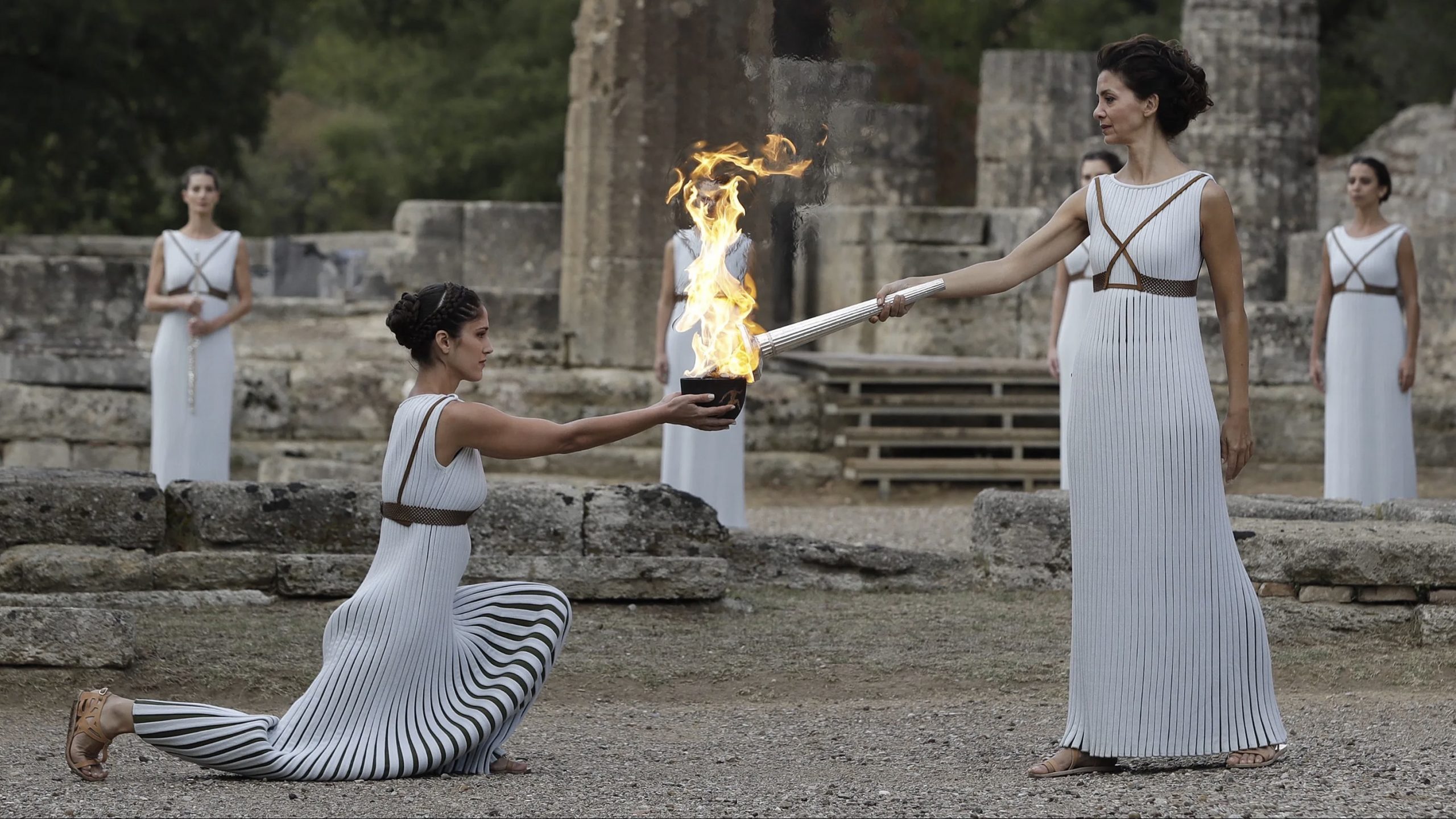The Beijing 2022 Winter Olympics is set to hold its spectator-less ceremonial torch-lighting ceremony in ancient Olympia on Monday.
The event is being met with opposition as rights groups and US lawmakers call on the International Olympic Committee to postpone the Games.
Hundreds of Greek police officers are expected to lock down the town for the weekend in a bid to ensure there are no disruptions to the ceremony.
Activists opposing the event call on China to end what the US deems ongoing genocide against Uyghurs and other Muslim minority groups.
Chinese authorities have been accused of facilitating forced labor by detaining around a million Uyghurs and other primarily Muslim minorities in camps since 2016.
China denies wrongdoing, saying it has set up vocational training centers to combat extremism.
Next week’s ceremony in Olympia, the site of the ancient Games, will be held without spectators and only a limited media presence due to the Covid-19 pandemic.
They then disrupted the relay start in Olympia, marking the beginning of months of international protests.
“There is heightened mobility of the Greek police regarding the Beijing torch lighting, especially compared to the Tokyo 2020 Olympics,” a Greek official, speaking on condition of anonymity, told Reuters.
“The scenario of potential disruption is obviously being seriously considered by police.”
Human rights groups, without revealing details, have told Reuters they will be present in Greece during the ceremonies to highlight China’s human rights record and to call again on the IOC to stop the Games.
The IOC is also facing criticism for awarding two Olympics to China in a span of 14 years despite what rights groups say are no improvements in the human rights situation since the 2008 Games.
But IOC Vice-President John Coates defended the Olympic body’s stance on Wednesday.
“The IOC’s remit is to ensure that there is no human rights abuses in respect of the conduct of the Games within the National Olympic Committees or within the Olympic movement,” he said.
“We have no ability to go into a country and tell them what to do. All we can do is to award the Olympics to a country, under conditions set out in a host contract … and then ensure they are followed.”
Source: Ekathimerini

